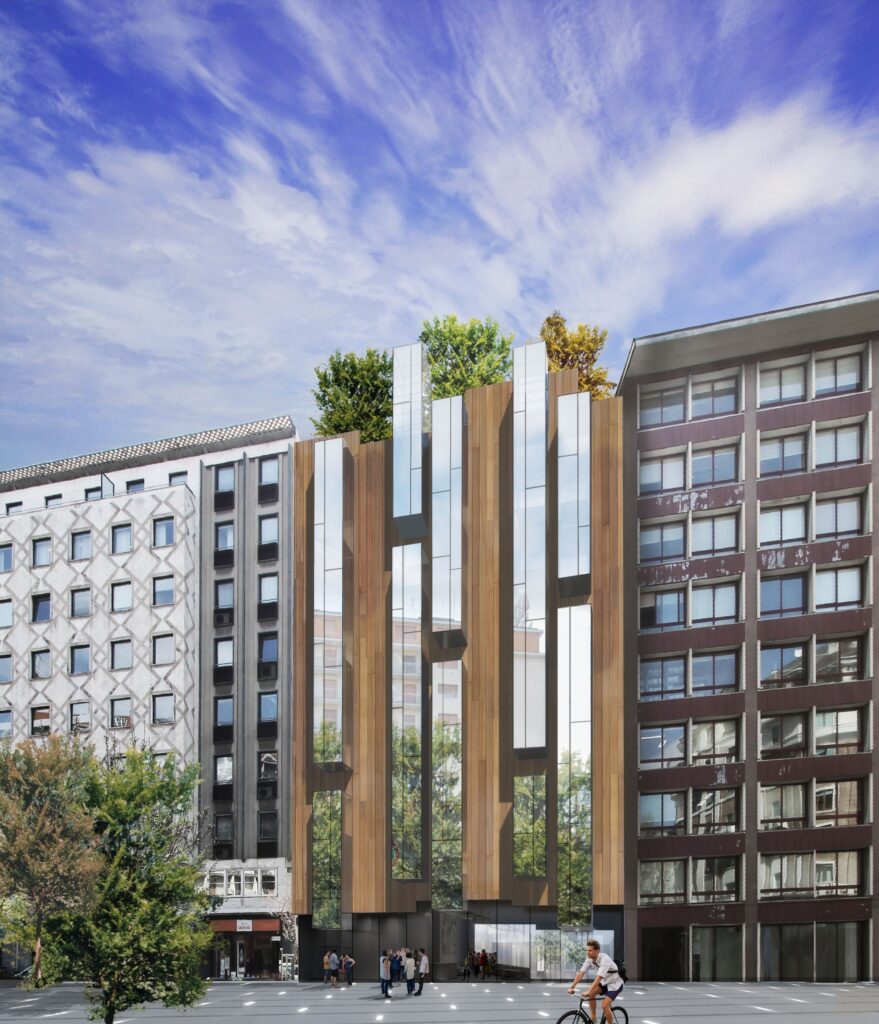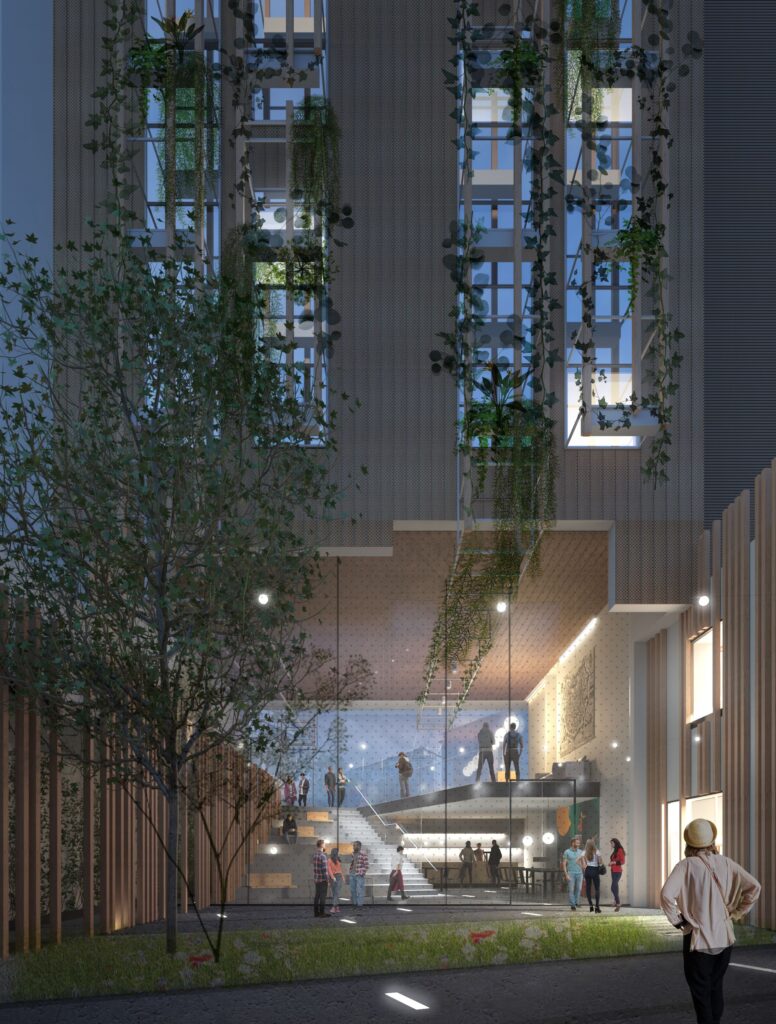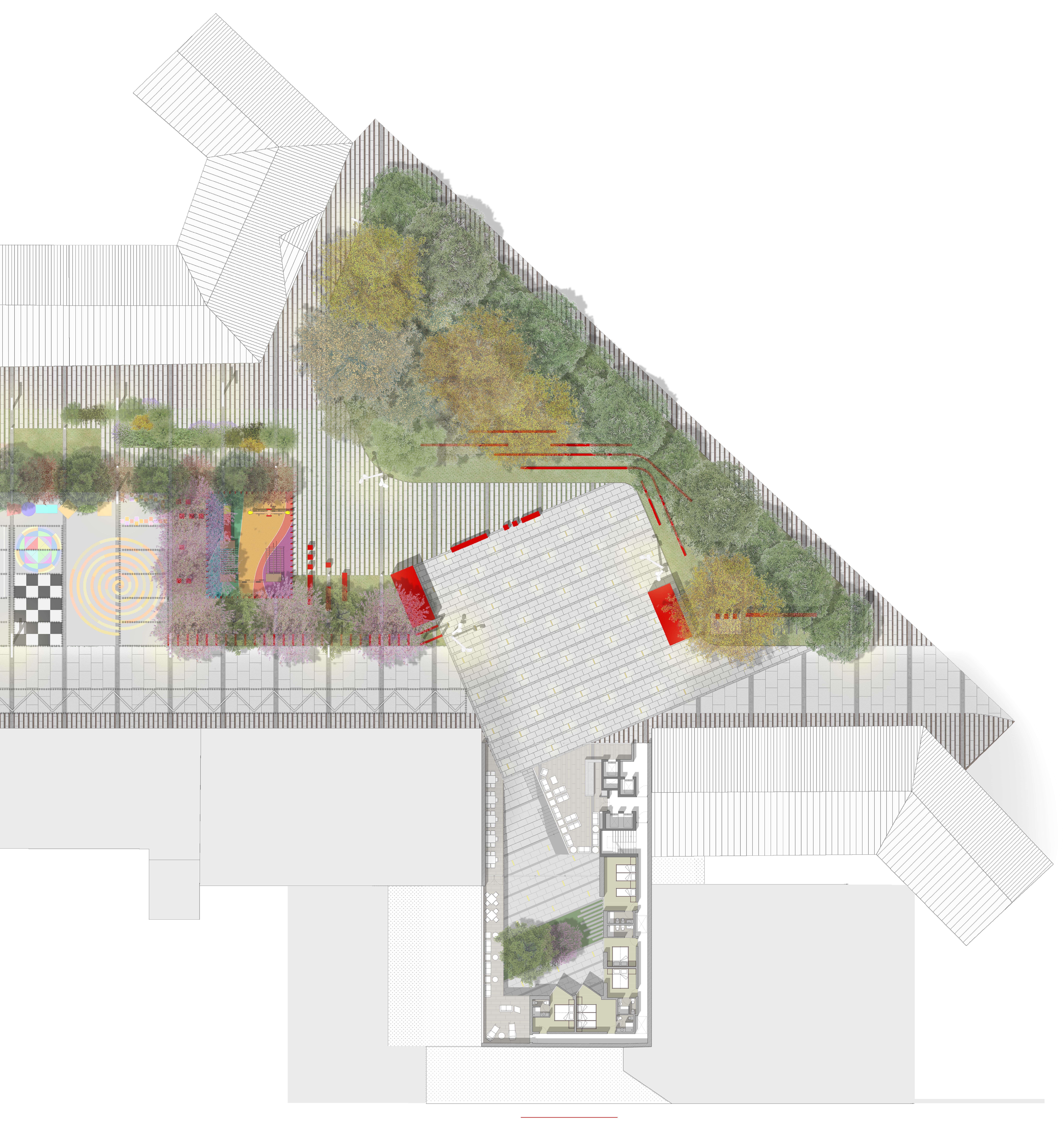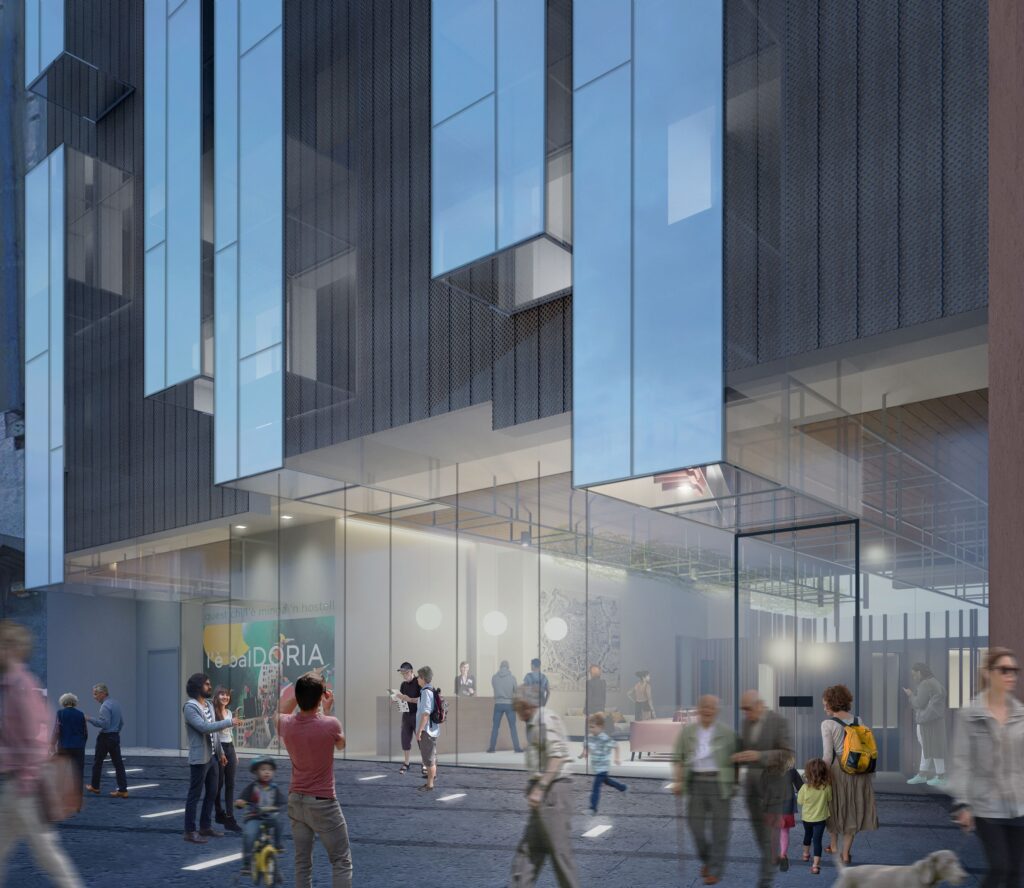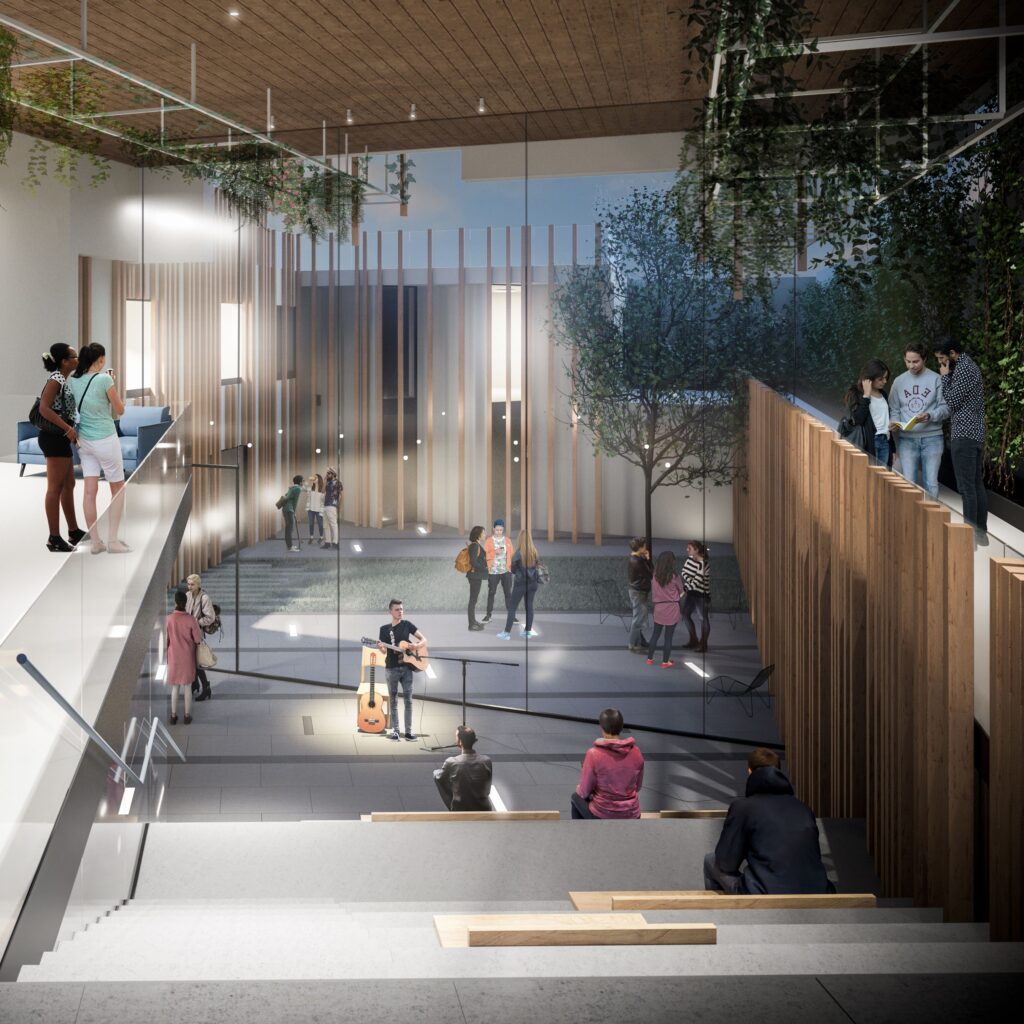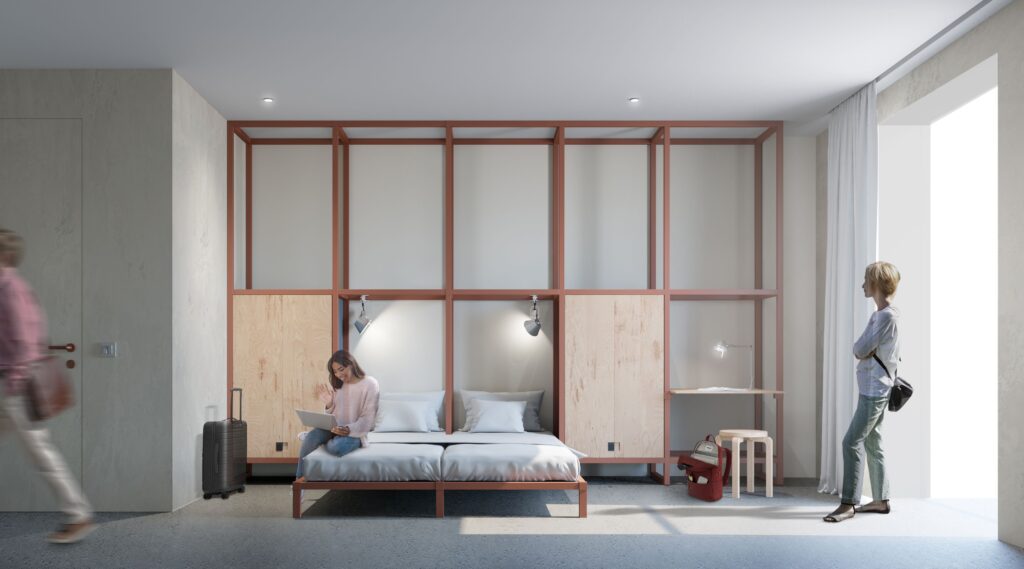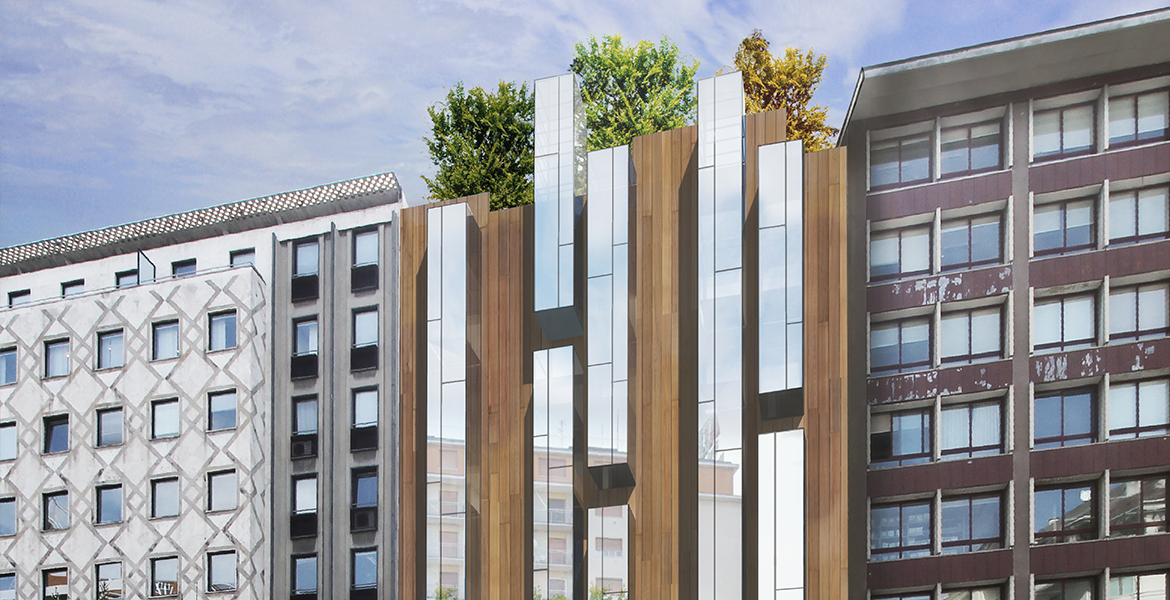
Co-Inventing Doria
- Post by: JDP Architects
- No Comment
📍 THE PROJECT CONTAINS THE FOLLOWING ASPECTS OF THE PROXIMA CITY PLATFORM: - flat monthly fee for the integrated living service - neighborhood housing campus - temporary residential services
Co-Inventing Doria aims to be a harmonious synthesis of deep cultural values that generate a relational power capable of contaminating the context of Viale Doria and reviving the neighborhood and short-term guests with a new urban sociality.
The intended use (hostel) open to national and international accommodation, the strong connection to the consolidated social context, the use of innovative technologies to contain energy consumption, a culture attentive to pollution and greenhouse emissions, the resilience of the site as the strong point for the rebirth od new life along the Viale Doria axis, all shed light on a regenerative path with overwhelming potential.
Thanks to its nature as a living manifesto of sustainable urban renewal, the project won the international call “Reinventing Cities” launched in 2017 by the City of Milan together with C40 to transform unused or degraded sites into spaces for environmental and urban regeneration.
Co-Inventing Doria consists of two cardinal elements: the carbon neutral hostel and the new green axis of Viale Doria.
The hostel is built with an innovative envelope, the “breathable wall“, capable of recovering energy and filtering air, providing a highly comfortable indoor experience. The building’s energy consumption is minimized throughout its life cycle, and renewable energy sources are extensively harnessed on-site, improving the building’s overall performance.
The side overlooking the street simultaneously intends to provide continuity with the building line as well as visually “breaking” it with vertical cuts that highlight a trend that interrupts the horizontal perception of the floors.
Viale Doria is conceived as a multifunctional street, designed with a chronotropic approach in which urban spaces evolve over time, following the preferences and needs of citizens. The street has a predominant pedestrian dimension, with ample space for vegetation and its many ecosystem services, including carbon capture and storage.
The hostel connects with the new green axis outside inviting young people to enter and descend the wide staircase that slopes down to the green open courtyard. This will be a free-to-use area, silent and pleasant, where relationships and an internal flair will constitute a shared language.
In fact, the concept aims to left behind the concept of public space and private space, with a design proposal that goes beyond the property and embraces the sharing economy trend.
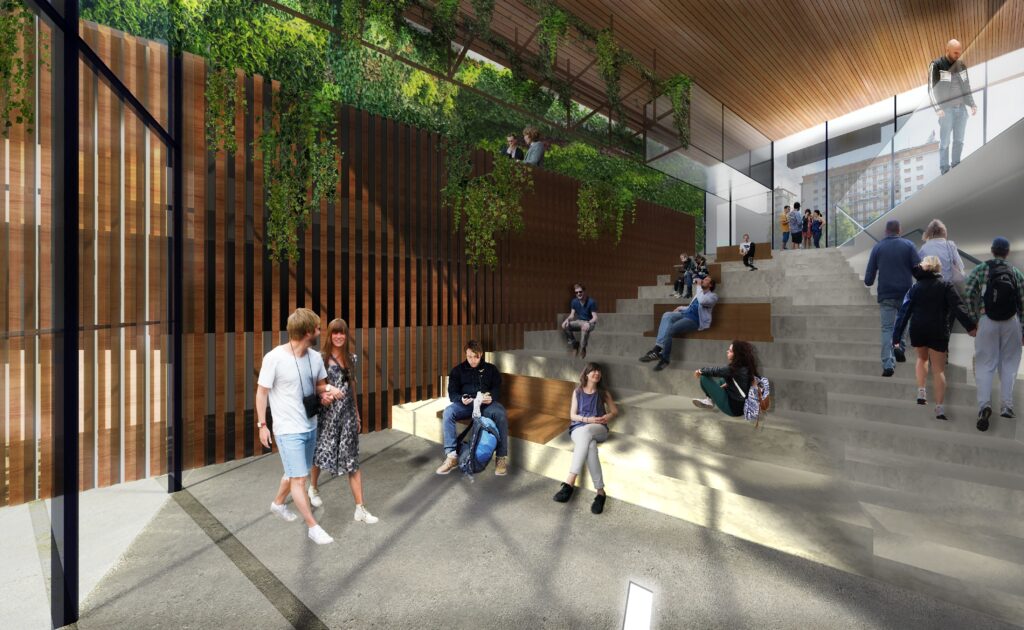
Moreover, the offer not only abandons the concept of possession and focus on usage, but also elevate relationships as the key element for defining the quality of the project.
The public space of the road will in fact feature a square in front of the hostel, protected by a wooden area, a location for meeting up and social bonding with the future possibility of expanding regularly into the nearest parking area.
Furthermore, the square/avenue system, with its structured functions and its pleasant usability, aims to be a repeatable system that could mark the rhythm of the whole street until generating a continuous axis that unites Piazza della Stazione with Piazzale Loreto.
Overall, the project is designed to engage citizens about sustainability by providing an interactive experience and educating proactive sustainable behaviors.

